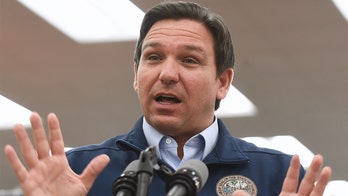The Supreme Court decision made it official -- the health care mandate is a tax. That is a characterization one Senator says would have doomed its passage had it been known at the time.
"There would not have been ten votes for the legislation," South Carolina Senator Lindsey Graham said. "Nobody would have wanted to have gone home and say, 'I just increased your taxes by billions of dollars over the next 10 years to fix health care.'"
The administration preferred to use the word revenues, but it was clear taxpayers would have to cover the cost of the new law.
"We are insuring 30 million people who didn't have insurance before," Jimi Kessler of the centrist democratic think tank Third Way said. "That's going to cost some money."
But he notes with offsetting revenues from tax increases, "It's basically going to break even in terms of deficit."
In the first 10 years, including four years before the law takes full effect, the administration plans to raise taxes more than 400 billion dollars -- on everything from tanning salons to medical devices and high-end insurance plans.
President Obama sold those tax increases by promising they would not hit most people.
"If your family earns less than $250,000 a year, you will not see your taxes increased a single dime," the President told a joint session of Congress in 2009.
Many of the taxes and penalties, however, will hit the middle class and below, such as the penalties on those who do not buy insurance.
"Who's going to be uninsured?" Doug Holtz Eakin, former head of the Congressional Budget Office said. "People who are young and healthy, typically not super affluent. Poor people who simply can't afford insurance, so by and large that penalty tax is a tax on uninsured lower income Americans."
The President also plans to cover the trillion dollar cost of the first 10 years with 500 billion dollar cuts to Medicare, which the program's chief actuary said would not work. Others explain that is because of a simple reason.
"The Medicare cuts are double counted," Jim Capretta, from the Ethics and Public Policy Center said. "They count toward supposedly paying for entitlement expansions under Obamacare, but they are also supposed to pay for future Medicare payments because the trust fund is going broke."
One part of the court's decision could push the costs of the health care law even higher. It said the administration could not force states to add some 17 million more people to Medicaid, making it possible to put many of them into the more expensive taxpayer-subsidized exchanges instead. And that, analysts say, could add some 500 billion dollars to the cost.
"Every time you spend a dollar you have to pay for it somehow. This is 500 billion new dollars," Holtz-Eakin said, adding that it would mean 500 billion in new taxes.
All the cost and tax projections are just estimates.
Those who take the long view say whatever the nation does now, it has to focus on cost:
"We've completed an 85-year quest to construct and perfect a safety net," Kessler said. "The next era for government, whether it's democratic or republican, is to find a way to afford that."
Beginning in 2014, the first 10 years of full implementation, the new health care law could cost as much as 2.6 trillion dollars. If any of the planned tax increases do not work, either other taxes go up, or the deficit does.




